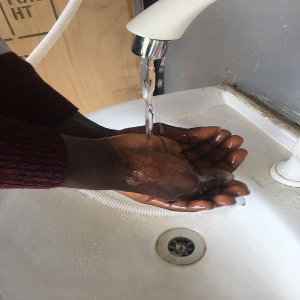Experimental study on effect of interventions on practices of hand washing among primary school teachers in Kware, Sokoto, Nigeria

All claims expressed in this article are solely those of the authors and do not necessarily represent those of their affiliated organizations, or those of the publisher, the editors and the reviewers. Any product that may be evaluated in this article or claim that may be made by its manufacturer is not guaranteed or endorsed by the publisher.
Authors
With the emergence of corona virus disease in 2019, handwashing has gotten more attention (COVID-19). It is the most efficient preventative measure against infectious infections. Especially in primary schools, when youngsters spend time close together and may be less concerned with personal hygiene. Through health education regarding hygiene, teachers play a crucial role in ensuring the students’ health at school. Therefore, the focus of this interventional research is the hand washing practices of elementary school instructors. This study investigated the impact of health education and hands-on demonstrations on the handwashing practices of primary school teachers in Kware town, LGA, Sokoto State. The design of the study was non-randomized and quasi-experimental. Using a semi-structured self-administered questionnaire, data were obtained. Fifty-five people were enlisted in the study and participated in the pre-experimental phase, whereas 50 participants participated in the post-experimental phase. The data was analyzed using version 23 of SPSS. Initial instructor expertise was quite limited, particularly at the school entry and during after-school activities. The intervention produced a statistically significant improvement in knowledge from 40.0% to 96.0% and 54.5% to 94.0%, respectively. For other timings, the increase in handwashing habit was minimal. Teachers of elementary schools lacked awareness about handwashing in important areas of daily school life. The health education intervention and practical demonstration resulted in a high level of knowledge and practice. It is essential for the success of infectious disease prevention in schools that teachers participate in training sessions for health education programs.
Supporting Agencies
NoneHow to Cite

This work is licensed under a Creative Commons Attribution-NonCommercial 4.0 International License.
PAGEPress has chosen to apply the Creative Commons Attribution NonCommercial 4.0 International License (CC BY-NC 4.0) to all manuscripts to be published.

 https://doi.org/10.4081/acbr.2022.228
https://doi.org/10.4081/acbr.2022.228



